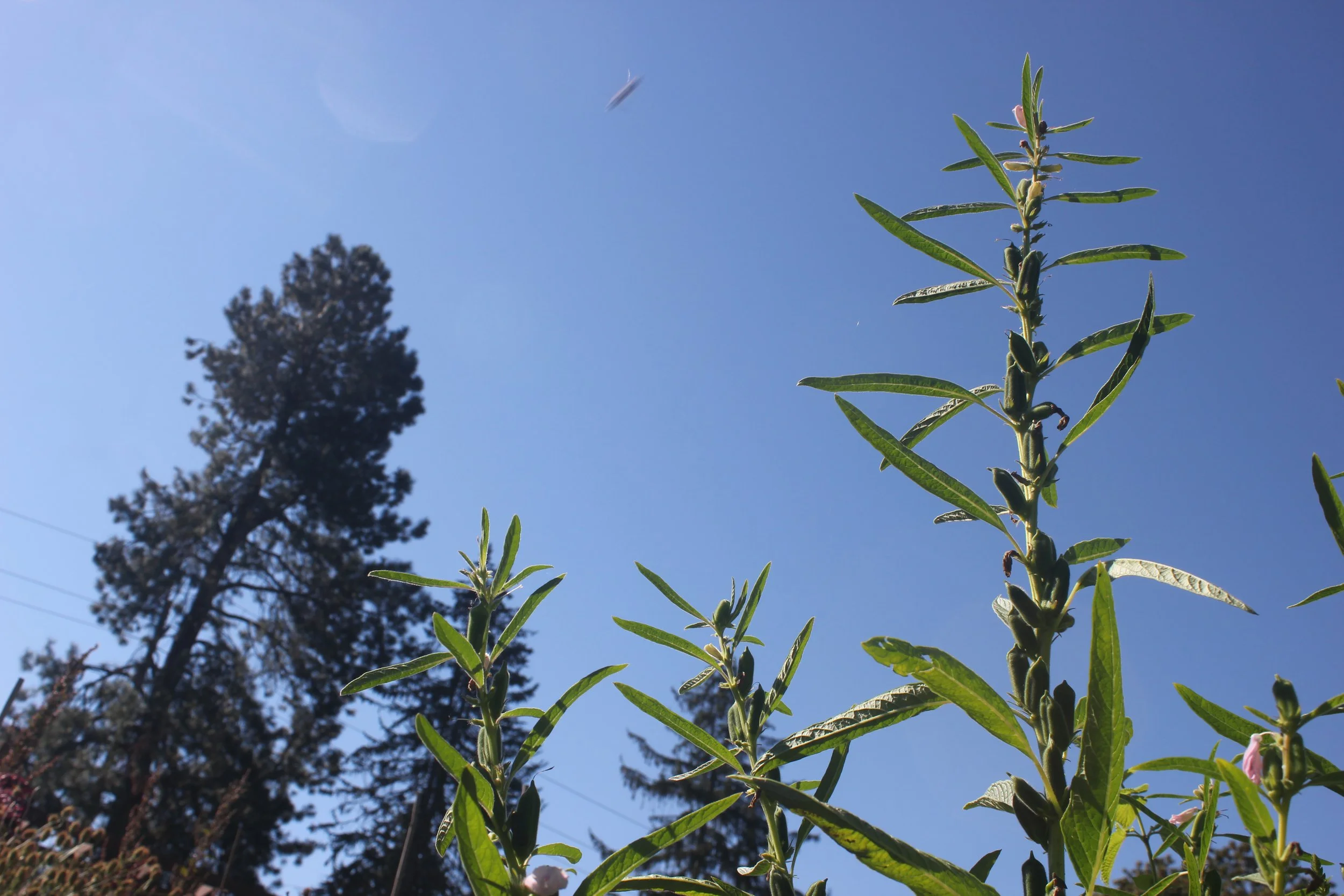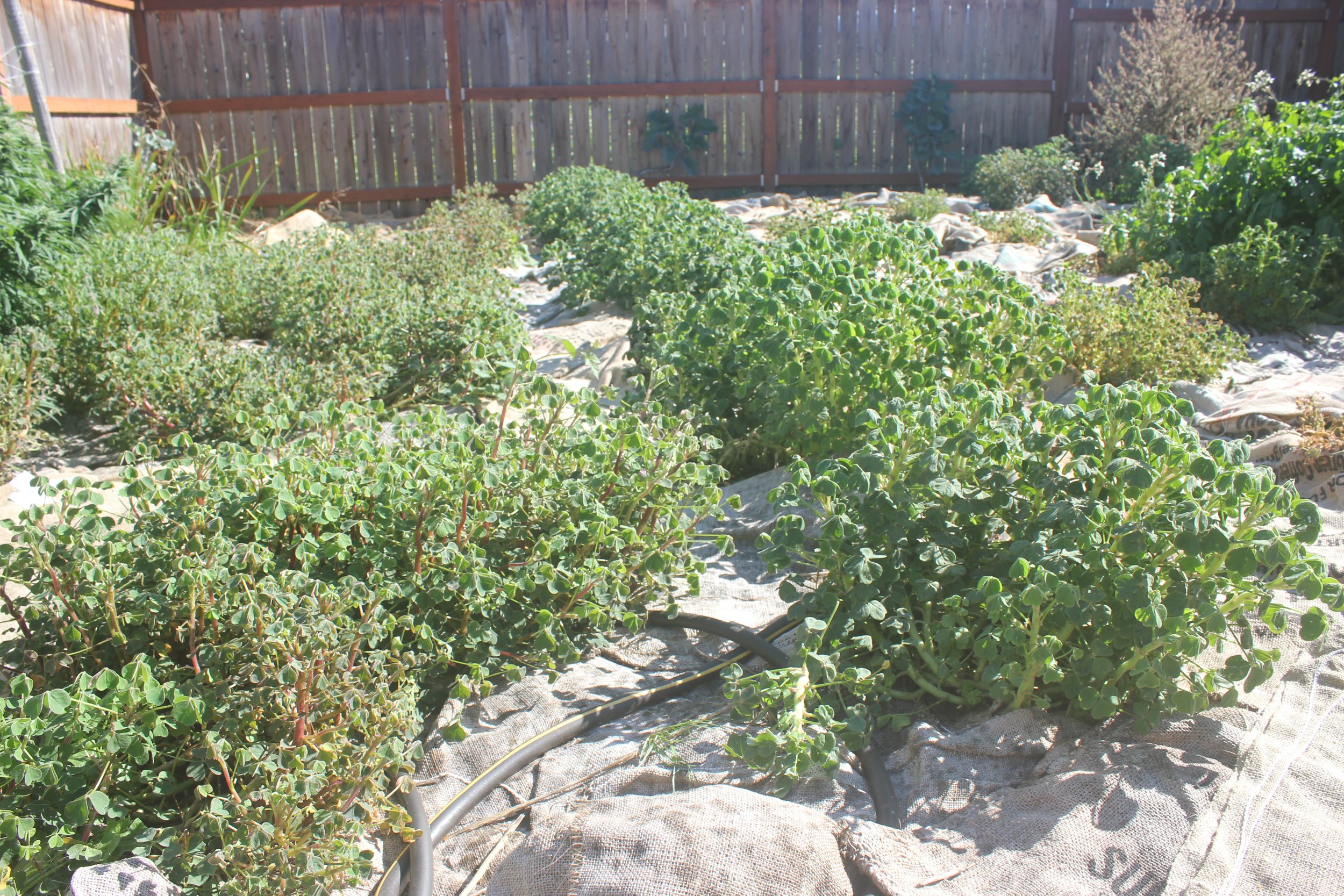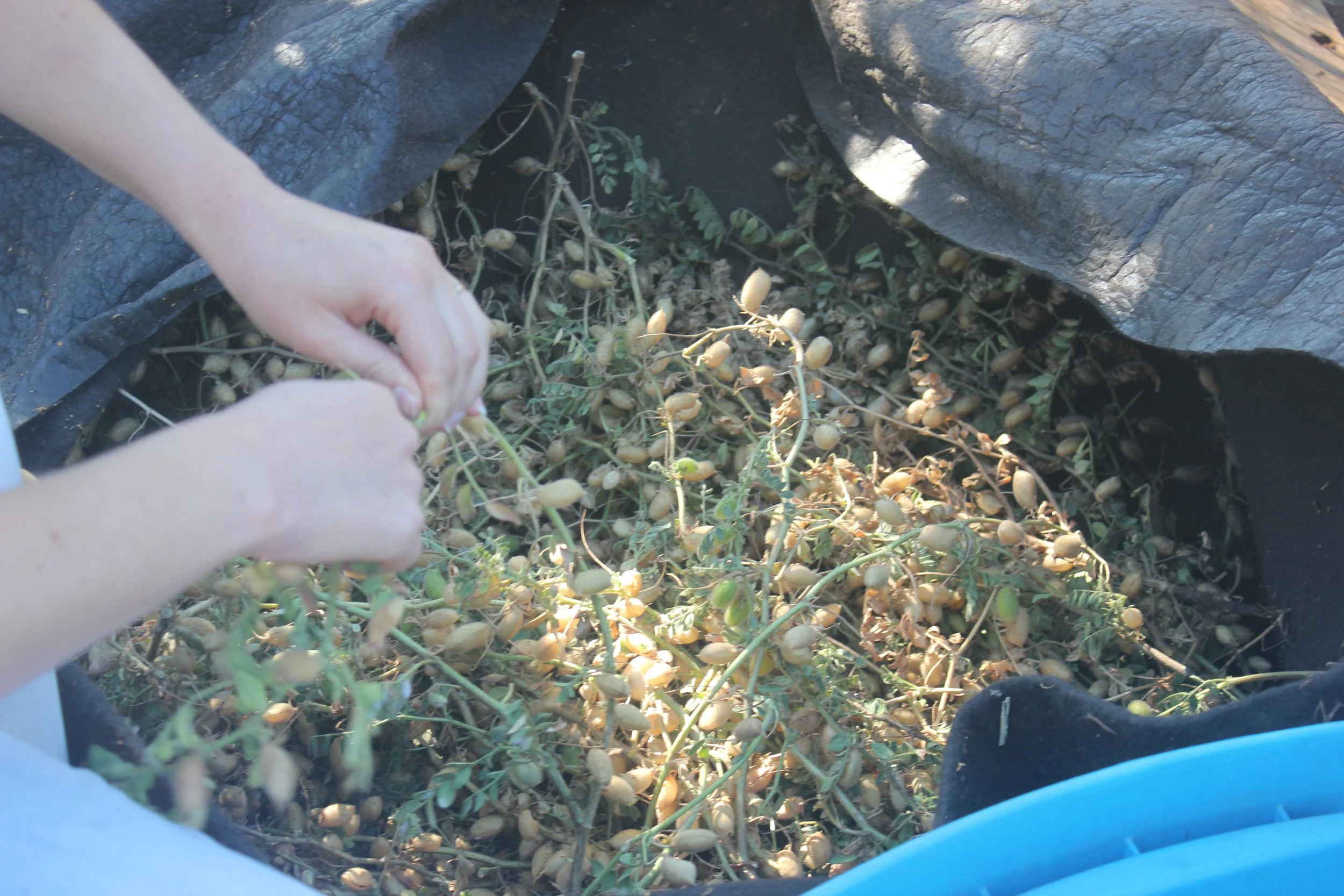Our Urban Environment
Beyond supporting our communities and local food system,
our approach…
Decreases the urban heat island effect
Provides food and habitat for biodiversity
Fights urban air pollution
Increases flood resilience
Improves drought tolerance
Builds community
Eases environmental anxiety
…has a wide range of benefits.
-
![]()
Beating Urban Heat
Landscaping choices have a life-or-death impact on the urban heat island effect as summers get hotter. In 2021, Portland suffered the loss of 72 lives as a result of extreme heat, the majority of which occurred in areas near the I-205 corridor with significantly less vegetative cover.
The best tools we currently have to protect ourselves from extreme heat are plants. Diverse plantings of wildflowers, shrubs, and herbaceous plants average 5 degrees celsius (9 degrees Fahrenheit) cooler than grass lawns at the soil surface. Another study from the UK similarly found that trees and shrubs can reduce soil surface temperatures up to 5.7 degrees celsius — that’s 10.3 degrees Fahrenheit! -
![]()
Increasing Biodiversity
National parks and conservation areas aren’t the only places we need to protect and enhance biodiversity. Habitat continuity across urban areas is crucial for reversing habitat fragmentation — and when combined with eliminating pesticide use, are two of the best weapons against rapid insect decline worldwide.
Mixed, biologically diverse plantings in urban areas, like what we do at RSF, support biological diversity in the soil and above ground. By supporting diversity from the ground up, we also help sustain the animals that depend on them for food.
-
Cleaning Our Air
Research shows that while mature trees have a beneficial impact on air quality, planting only young trees without surrounding vegetation leaves large gaps between foliage and so does little or nothing to reduce airborne pollutants, especially particulate matter. In contrast, our dense-planting approach, which mixes shrubs and woody perennials with trees and herbaceous annuals, can reduce downwind pollutants by up to 50%.
Our dense planting approach is valuable in Cully, our neighborhood in NE Portland, which suffers from particularly poor air quality due to our proximity to industrial facilities and the I-205 corridor.
-
![]()
Managing Floods
Healthy, porous soil rich in certain kinds of organic matter can hold up to 20 times its weight in water. One widely-cited study found that for each 1% increase in soil organic matter, the water holding capacity increases 3.7%. This is an invaluable environmental defense against flooding.
But soils in urban areas tend to be heavily degraded, and have lost much of their water holding capacity. Northeast Portland, where RSF is located, is at particularly high risk of flooding. Thus we are working hard to increase organic matter in our soil, and across all properties that receive our landscaping services.
Learn about our focus on soil health here.
-
Resisting Droughts
Droughts are highly detrimental to soil health, killing many microorganisms that are critical building blocks of a healthy soil structure. Extended periods of drought — which are expected to worsen in the Northwest as climate change progresses — also contribute to soil compaction, which can then lead to floods as soon as rains return.
Droughts also increase conventional farmers’ demand on diminishing underground aquifers.
Regenerative agriculture — which grows a variety of plants together in small communities under heavy mulching — is one of the best ways to protect soil health through droughts. This is a win-win for protecting food crops and stopping the drought-flood cycle. -
Building Community
Participation in community farms and gardens has been shown to improve social well-being and broaden social networks. This is especially true for members of vulnerable populations, who connect with the diverse array of people often involved in urban agriculture. Some experts argue that urban agriculture may be an ideal catalyst for fostering deep democracy in our cities and suburbs.
We are proud to have a wonderful group of volunteers that form the Rhythm Seed family. If you are new in town, or simply want to meet new people interested in growing their own food, join us! We’d be delighted to have you.
-
Transforming Eco-Anxiety
A 2021 study surveyed 10,000 people aged 16-25 on their levels of eco-anxiety, evenly distributed across 10 countries. It revealed some startling trends. 45% reported eco-anxiety so severe that it “impeded their daily lives and functioning.” More than 82% believed humanity had failed to take care of the planet, and more than 56% believed humanity is doomed.
Getting involved, joining groups, and connecting with nature are currently believed to be among the best ways to treat eco-anxiety. At RSF, you can do all three, while reaping the physical and mental health benefits of gardening.








